Hydraulic fracturing for natural gas
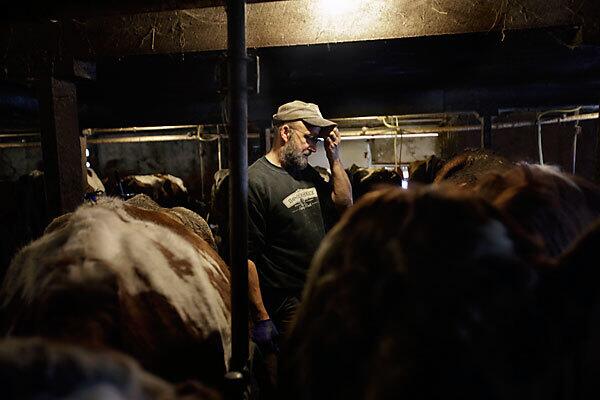
Jack Diehl, 61, has been a dairy farmer all his life. He has over 80 dairy cows, but the business has gotten less profitable with the high price of feed. He favors leasing farmland for hydraulic fracturing, although his older brother, Pete -- who owns land with Jack -- opposes it. (Carolyn Cole / Los Angeles Times)
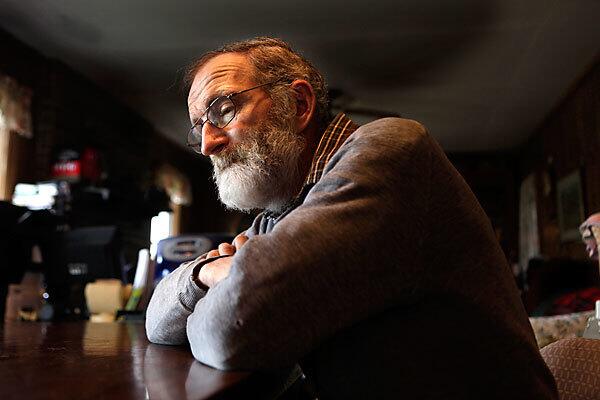
Pete Diehl, 67, has been a dairy farmer all his life, taking over from his descendants who settled in 1842. He has over 75 dairy cows. He and his wife, Alice, are worried that hydraulic fracturing for natural gas will ruin their water and their way of life. (Carolyn Cole / Los Angeles Times)
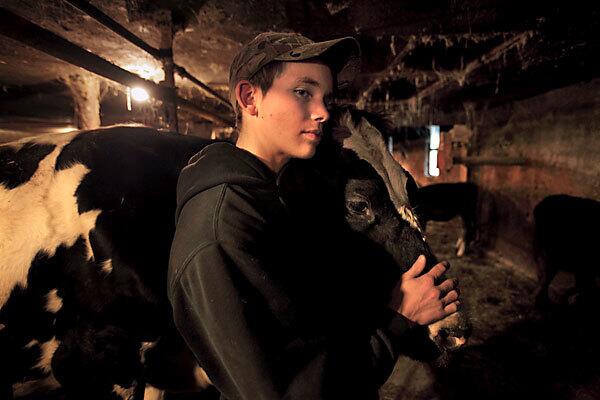
Dan Diehl, 16, wants to continue his family dairy farming business. He already has dairy cows of his own and tends them along with his uncle Jack’s cattle. He’s concerned about the environmental risks of fracking. (Carolyn Cole / Los Angeles Times)
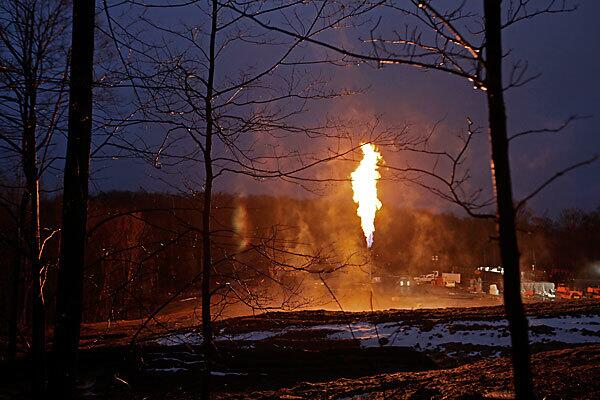
Flaring takes place after a well has been drilled and before it is put into operation. It can take a couple of weeks. Fracking started in Pennsylvania several years ago but has not yet been approved in New York. The issue has divided some friends and families. (Carolyn Cole / Los Angeles Times)
Advertisement
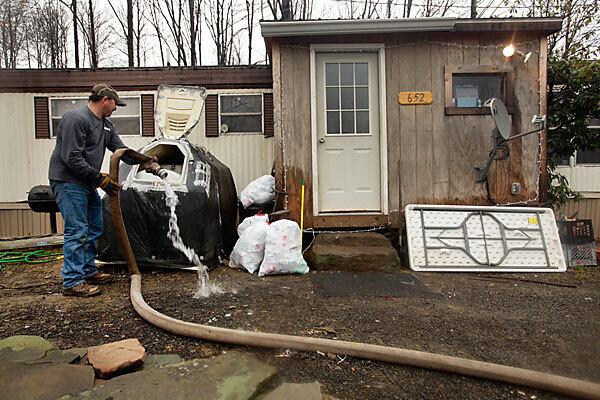
Guy Smith, a contractor for the Environmental Protection Agency, helps deliver water to four homes near Dimock Township, Pa., where the water became contaminated with methane and chemicals after fracking began. New York landowners look to Pennsylvania with dread. (Carolyn Cole / Los Angeles Times)
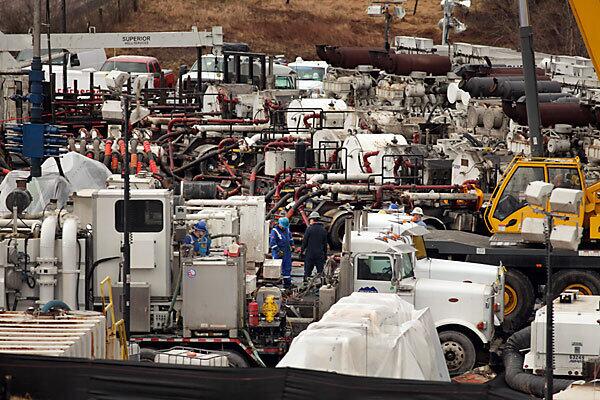
A fracking operation takes place on leased farmland in Dimock, Pa., where dairy farms used to dominate. Hydraulic fracturing has been going on for a few years in Pennsylvania, but New York only just lifted a moratorium. (Carolyn Cole / Los Angeles Times)
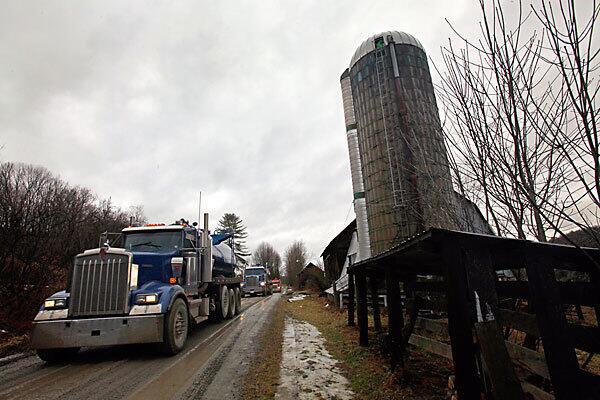
Hydraulic fracturing requires massive amounts of water trucked into the drilling sites: Three trucks go past a farm near Dimock, Pa. One of the arguments against fracking is the damage to farm roads. (Carolyn Cole / Los Angeles Times)







